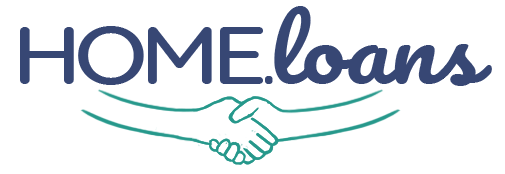Right now, FHA home loans are incredibly popular, with the most common loan offered being the 203(b) loan for home purchase. Many borrowers like FHA loans due to their extremely lenient credit requirements and relatively low interest rates. While FHA loans do have a lot of benefits, many borrowers choose to go with conventional loans, such as Fannie Mae loans, Freddie Mac loans, or other privately-insured mortgages.
FHA vs. Fannie Mae Loans: What Borrowers Need to Know
FHA-insured loans, including the flagship FHA 203(b) loan, are some of the most popular loans on the market due to their low interest rates and a variety of other benefits. However, FHA loans aren’t the only affordable loans out there; Fannie Mae loans also offer an attractive option for many homebuyers. In this article, we’ll look at the benefits and drawbacks of both FHA and Fannie Mae home financing to help you decide which type of home loan is best for your specific needs.
What are the FHA Credit Score Requirements for 203b Loans?
FHA loans are popular among many borrowers due to the fact that they have significantly more lenient credit requirements than most conventional mortgages. However, the FHA still has credit minimums that a borrower will need to reach in order to qualify.
FHA 203b Loan Fees: What You Need to Know
What are the Eligibility Requirements for FHA 203b Loans?
The 203(b) loan program was developed with a specific subset of consumers in mind. In general, those who will benefit most from this FHA loan program have lower credit scores, may not have much cash saved up for a down payment, and are interested in purchasing a 1-4 unit property to use as their primary residence.
Do 203b Loans Permit Cash Back?
FHA 203(b) loans do not permit borrowers to take more than $500 cash back during refinancing. In order to turn your home equity into cash, you should instead look into an FHA cash-out refinance, which allows borrower’s to finance up to 95% of the home’s value (LTV) for first mortgages up to $417.000, and up to 85% LTV for all other loans.
Is the 203b Loan Fixed-Rate?
Just like many other types of FHA financing, 203b loans are offered as both fixed-rate and adjustable-rate loans. While, in general, fixed rate loans are more common, ARMs may be better for lower-income borrowers who are trying to reduce their monthly payments, especially when interest rates are low.
Can a Seller Pay Mortgage Points for a 203b Loan Borrower?
Previous Bankruptcies and 203b Loans: What You Need to Know
In general, if you’ve been involved in a bankruptcy, an FHA home loan may be easier to acquire than conventional home financing. FHA rules state that Chapter 7 bankruptcies are not a disqualifying factor from getting an FHA loan “if, at the time of case number assignment, at least two years have elapsed since the date of the bankruptcy discharge,” and, during that period, the borrower has re-established good credit and has not taken on additional credit.
What are the 203b Loan Escrow Requirements?
Can You Buy a Vacation Home with a 203b Loan?
In general, you cannot buy a vacation home with a 203(b) loan. 203b loans are intended only for owner-occupied primary residences, and, in some cases, HUD-approved second residences. HUD approves second residences on an individual basis in the case of hardship, such as divorces, relocations, and growing families, but not for vacation homes.
FHA 203b Loans for Borrowers Without Traditional Credit Scores
Can You Buy a Second Home With a 203b Loan?
In most cases, FHA 203(b) loan borrowers can only get a loan on an owner-occupied primary residence. Generally, vacation and investment homes are not eligible for FHA financing. However, there are certain situations in which HUD allows borrowers to get a FHA loan for a second property.
Can You Buy an Investment Property with a 203b Loan?
In general, you cannot buy an investment property with an FHA 203(b) loan, as the FHA requires that all 203b loans be used to finance owner-occupied properties However, if you purchase a 2-4 unit property and use one of the units as your primary residence, you can rent the other units out in order to earn rental income.
Can You Get a 203b Loan for a Duplex or Triplex?
Ever wanted to purchase a home and have someone else pay your mortgage? Well, with an 203(b) loan, you can. FHA 203(b) loans are available for eligible properties with between two and four units. This means that you can purchase a duplex, triplex, or even a quadplex with a 203b loan and rent the remaining 1-3 units to other tenants.
Can You Get a 203b Loan for a Manufactured Home?
Many FHA home loans, including the 203(b) loan, are available for manufactured homes— and that’s a good thing, considering that 22 million people in the U.S. live in them. And, since manufactured homes have an average new home sale price of just above $70,000, they’re considerably more affordable than traditionally built homes.
Are 203b Loans Assumable?
One of the largest benefits for FHA 203(b) loan borrowers is the fact that, in most cases, FHA loans are fully assumable. This means that a new borrower can take over the loan at any time, as long as they have the lender’s approval.
Who are the largest FHA 203b Lenders?
If you’re looking for a 203(b) home loan from the FHA, there are thousands of lenders nationwide you can choose from. This can make it difficult to determine where to turn when you need financing – the sheer number of choices makes it difficult to tell lenders worth your time from those that should be avoided. Below, we have compiled the top 10 FHA lenders nationwide, as reported by NerdWallet.


















